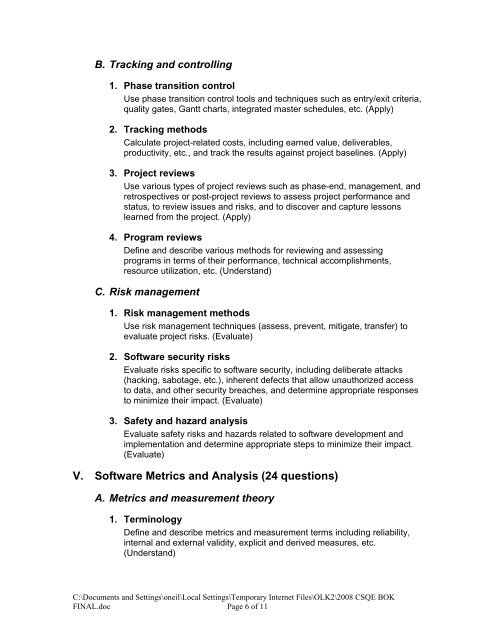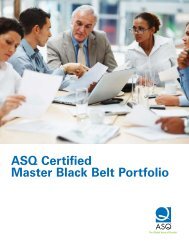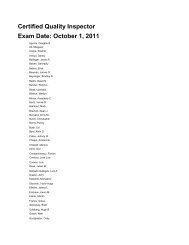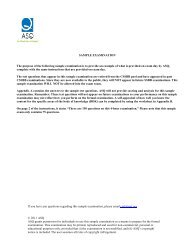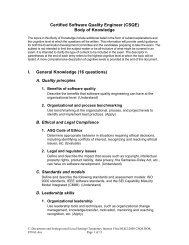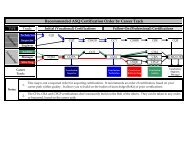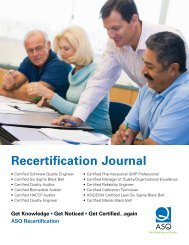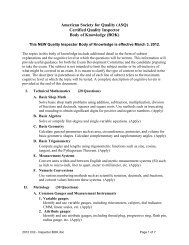Certified Software Quality Engineer (CSQE) Body of Knowledge - ASQ
Certified Software Quality Engineer (CSQE) Body of Knowledge - ASQ
Certified Software Quality Engineer (CSQE) Body of Knowledge - ASQ
You also want an ePaper? Increase the reach of your titles
YUMPU automatically turns print PDFs into web optimized ePapers that Google loves.
B. Tracking and controlling<br />
1. Phase transition control<br />
Use phase transition control tools and techniques such as entry/exit criteria,<br />
quality gates, Gantt charts, integrated master schedules, etc. (Apply)<br />
2. Tracking methods<br />
Calculate project-related costs, including earned value, deliverables,<br />
productivity, etc., and track the results against project baselines. (Apply)<br />
3. Project reviews<br />
Use various types <strong>of</strong> project reviews such as phase-end, management, and<br />
retrospectives or post-project reviews to assess project performance and<br />
status, to review issues and risks, and to discover and capture lessons<br />
learned from the project. (Apply)<br />
4. Program reviews<br />
Define and describe various methods for reviewing and assessing<br />
programs in terms <strong>of</strong> their performance, technical accomplishments,<br />
resource utilization, etc. (Understand)<br />
C. Risk management<br />
1. Risk management methods<br />
Use risk management techniques (assess, prevent, mitigate, transfer) to<br />
evaluate project risks. (Evaluate)<br />
2. <strong>S<strong>of</strong>tware</strong> security risks<br />
Evaluate risks specific to s<strong>of</strong>tware security, including deliberate attacks<br />
(hacking, sabotage, etc.), inherent defects that allow unauthorized access<br />
to data, and other security breaches, and determine appropriate responses<br />
to minimize their impact. (Evaluate)<br />
3. Safety and hazard analysis<br />
Evaluate safety risks and hazards related to s<strong>of</strong>tware development and<br />
implementation and determine appropriate steps to minimize their impact.<br />
(Evaluate)<br />
V. <strong>S<strong>of</strong>tware</strong> Metrics and Analysis (24 questions)<br />
A. Metrics and measurement theory<br />
1. Terminology<br />
Define and describe metrics and measurement terms including reliability,<br />
internal and external validity, explicit and derived measures, etc.<br />
(Understand)<br />
C:\Documents and Settings\oneil\Local Settings\Temporary Internet Files\OLK2\2008 <strong>CSQE</strong> BOK<br />
FINAL.doc Page 6 <strong>of</strong> 11


